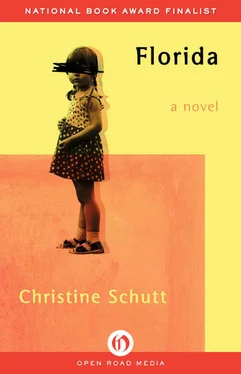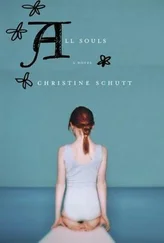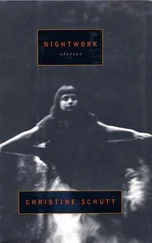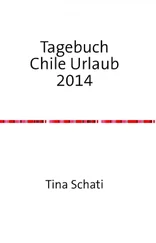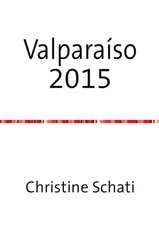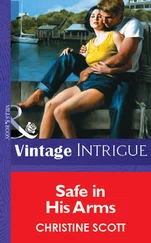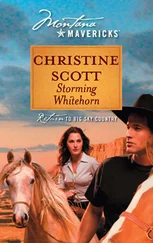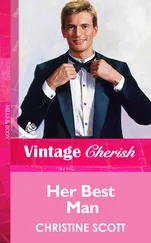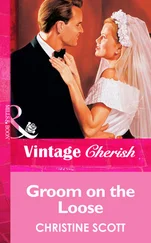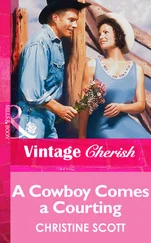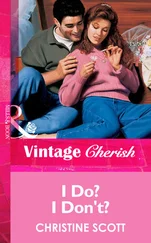WALTER LAY ON MY bed loudly servicing himself, saying afterward, “You owe me.” He said, “Pay me. You’ve got some money. I’ll gladly leave,” so I signed to pay what he thought he was due on condition he leave, and then, of course, he died. On an ordinary day — Percodan and Scotch — Walter took up his worn, overstuffed folders and drove off in a taxi to the firm. His bridge-playing, genius friend, a man tilling millions, saw him take the stairs, but no one else he knew encountered him. They think Walter cabbed it downtown and up again without changing cars, but what happened after he came back to the brownstone? The depression on the far side of the bed was evidence he lay there on our sodden sheets listening to the radio. (The radio was still on when I came home.) There was evidence he drank, he took pills, he got sick. He phoned an ambulance.
Someone got the money he surely must have left.
Someone got the money I paid to his estate. … “Sign nothing with fine print,” a daddy could have warned me, but I had signed Walter’s document; I had said yes, I would pay him to move out, and then he did — forever. Only the document held up.
AT LEAST I WAS working. I was teaching at the same small school, a small job, yes, teaching, but work not without its pleasures — yesterday’s student writing, “Why can’t Jane see the good things the bad things have?” The steamy urgency of her hand, the felt-tip blots — I had to smile. The loud way she came to Mr. Rochester’s defense, the caped, brooding Rochester, a man as ugly as my own Mr. Early, Rochester, who, in disguise, tested Jane and found her worthy; every year some girl fell in love; this year it was Anna. “I’d marry him!!!!!!!!” Anna wrote. “Who cares about his crazy wife?”
Mr. Early’s wife was soft-spoken, estranged, and not crazy, merely sad was how Mr. Early had once described her. Now she was on the telephone, speaking quietly.
Mr. Early died in the droughted summer when I was twenty-seven, a number I remember because I remember the summer of that year when the exhausted, yellow trees browned in August and lost their leaves overnight, that was the year when bookstores (the close, piled, classroom kind and the silencing kind — often paneled — any kind really) really made me sick. Bookstore fear overtook me the year Mr. Early and Walter died. I was twenty-seven; I saw death behind every sentence: “… a faint mustache of perspiration appeared on her upper lip.” Summer session classes. I was teaching one and so was Mr. Early. Miles and miles apart, we were teaching last classes when he died. Mr. Early died in a classroom — his heart gave out in a dashed, absurd coincidence: “I heard a fly buzz when I died. …” Mr. Early was reading this poem to his class when he collapsed at his desk and died a death so appropriate, a person might think he had staged it except that Mr. Early wanted to live. He had said so in letters; the last arrived only a week before he died. Long, typed, smally folded in a small envelope, his last letter came with poems he had written and signed. Odd signature he had. Half print and leaned backward, it was at odds, I thought, with his generous voice. He said a lot of his sentences started with the words, How could I … so that why should I be surprised by mine?
How could I have … followed by the banal list of things to be ashamed of.
I was young when I met Walter. I was still young though I forgot. And Mr. Early, he was not so very old when he died. Funny man, he had only grayed. That was at Nonna’s funeral, last time I saw him. Mr. Early had said, “We should have coffee. We should talk.” We stood looking at each other, standing in the slivery, leftover rain, nodding through condolences. Mr. Early said, “We should talk, Alice,” and I said, “Yes, I’ll call,” and then, of course, I didn’t.
How could I …?
I drove around the countryside, saying good-bye to it all. Aunt Frances and Uncle Billy had retreated to the desert; they rarely called. I don’t know why I didn’t.
How could I …?
“Okay,” slowed-down, drawn-out, second syllable stressed O-kays from Mr. Early to stupid answers. I made a lot of them, but I was enthusiastic in my responses, excited by patterns and symbols and irony. I tried never to miss class though I had headaches that took me out of math.
One time Mr. Early looked in on me at the nurse’s office, surely a father’s gesture. “So, so Alice. …” Is this the most of his voice I can remember? I have to strain to hear him speak. “Let’s talk poems!” Let’s talk stories and novels. Why can’t I remember more? He loved sound, the way a sentence sounded. Mr. Early did not hang his hat on plot.
His wife was a painter.
“This is Ellen Early,” she said. Ellen Early, the loved wife with an unlovely voice, saying “I know how you felt about Ed.” But did she, I wondered — did I?
He called me the worst speller. I don’t remember what I said, but afterward I looked up every word I was unsure of. Exaggerated —I misspelled it how many times? I had to come up with ways of remembering. I wanted to be taken seriously although mostly I think I was cute.
Once out-of-doors, Mr. Early surprised me, and his expression, when I turned, was so suddenly and purely affectionate that whatever I had done to provoke it, I wanted to do it again. For Mr. Early loved me, yes, I saw this. Later he wrote me as much.
Mrs. Early, on the telephone, was saying, “… if it had to be anywhere …”
Were my letters to him as full of love?
His letters at the end had narrow margins; he had so much to say. I could hear his mouth juice-up as he talked. He was happy. He wasn’t drinking anymore; he had given up his pipe; he had more breath. “I never really noticed dogs,” in his postscript, “and now I see who they are, and I love them.”
A LOT OF WHAT I said was mean and full of blame and said to make my mother cry, but then, when she did cry, I was embarrassed (this happened often), and I went to the kitchen to get us new drinks.
She called out, “Come light up one of your funny cigarettes and blow it in my face.”
After a while we were laughing. “We were laughing out of all proportion to the joke of Uncle Billy as a young man in the desert, scuffed saddle shoes and khaki shorts and the kind of hat explorers wear in jungle movies. Uncle Billy! Wild Billy! Those skinny legs! Those prominent knees! We laughed.
We laughed, but Mother cried again when I told her Uncle Billy was no longer prospecting but swatting at shrubbery with his cane. I had seen him; I knew. Mother cried, and I felt sad, too.
How young Uncle Billy was when he acted as a father to me, this explorer in the photograph with so much boy left in his face. His stories! In one the prospector was packed on his donkey and sent headless into town. On the cardboard pinned to his pocket was the warning Don’t Come Back. I believed Uncle Billy. I believed then that there was gold in the mountains, and the young man in the photograph, my Uncle Billy, would find it.
Uncle Billy was lucky this way. His pockets were always filled with big change. He bet and bought tickets; he took me to the horse races. I fainted in the stands and lost my money. Uncle Billy doubled his. “A lesson,” he said. “A lesson there for you.”
Good, of course, to have inherited money, but every man wants to make his own.
And Uncle Billy married money, too, which was another lesson, surely. Mother told me about it often enough. She recalled Aunt Frances’s train, the size of her trousseau. “Linens!” Even Nonna was impressed. Inlaid furniture and monumental jewels. Mother cried to remember a tablesetting: Christofle silver, Baccarat crystal, Herend’s Queens Bird five-piece plate setting. “I know the names.” Antique candlesticks, silver pheasants.
Читать дальше
